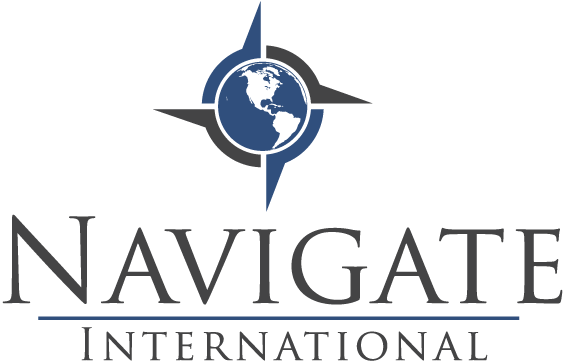Dr. Roy Nelson is a Senior Strategist for Navigate and an Associate Professor of International Studies at Thunderbird. Previously, he was the Academic Director of Thunderbird’s Executive MBA program in São Paulo, Brazil from 2000-2004. Dr. Nelson received his B.A. in International Relations with honors from Stanford University, and he has an M.A. in International Relations from Yale University as well as an M.A. and Ph.D. in Government from Cornell University.
Dr. Nelson’s industry experience includes working for Pharmacia & Upjohn (later called Pharmacia, and recently acquired by Pfizer) in Brazil, where he conducted market research projects. Dr. Nelson also lived in Brazil while conducting research for his Ph.D. dissertation on the Brazilian computer and pharmaceutical industries. His recent experience includes an extensive field research project on Dell Computer Corporation’s negotiations with state governments in Brazil, as well as a four-country study of Intel’s site selection process in Brazil, Chile, Mexico and Costa Rica. Other projects have taken Dr. Nelson to Peru, Honduras, Belize, Argentina, Venezuela, Ireland, Singapore, and Malaysia. He has served as a consultant to the World Bank and to the Chilean government on its effort to attract high technology foreign investment.
Before coming to Thunderbird in 1993, Dr. Nelson taught at Vanderbilt University (1992-93) and at Memphis State University (1991-92). At Thunderbird, he teaches courses on International Political Economy, Regional Business Environment: Latin America, and the Executive MBA course, “Contemporary Business in Latin America.” He has taught in Thunderbird’s Executive MBA programs in Brazil, Taiwan, and the Czech Republic. He was also co-founder of Thunderbird’s annual “Winterim” seminar trip to Chile, Argentina, and Peru, which takes place every January.
Dr. Nelson has published a book, Industrialization and Political Affinity: Industrial Policy in Brazil (Routledge Press, 1995). He has also published numerous articles including: “ Expected Impact of FTAA on Latin American Countries” (with Robert Grosse), University of Loyola-Chicago International Law Journal, forthcoming Summer 2004; “Harnessing Globalization: Rio Grande do Sul’s Successful Effort to Attract Dell Computer Corporation,” Journal of Developing Societies, Vol. 19, Nos. 2-3, April, 2003; “Accountability in Government Programmes to Promote Small and Medium-Sized Enterprises,” (with Mario Castillo), Cepal Review, April, 2003; “Intel’s Site Selection Decision in Latin America” in Paul W. Beamish, et. al. (eds.),International Management: Text and Cases, Fifth Edition (McGraw-Hill, 2003); “State Competition for Foreign Direct Investment in Brazil,” The Brown Journal of World Affairs, Winter 2002; “Brazil: Risks and Opportunities” (an interview with Alexandre Barros), Thunderbird International Business Review, November-December 2000; “Democratization, Political Affinity, and Industrial Policy in Brazil,” Technology in Society, Summer 2000; “The Importance of the ‘Democracy Variable’ in Explaining Foreign Investment Decisions,”International Studies Notes, Fall, 1999; “Environmental Alliances,” Latin Trade , October 1997; “Cardoso’s Challenge: Political obstacles to Economic Reform in Brazil,” NIRA Review, Spring 1997; and “Corporate Strategic Alliances and Bargaining in Latin America,” International Studies Notes, Spring 1997. Dr. Nelson’s cases published in the Thunderbird Case series include “Moving up the Value Chain: A Good Approach for Ireland?”(2004); “Delta Air Lines: The Latin America Contact Center Decision” (2004); “Dell’s Dilemma in Brazil: Negotiating at the State Level” (2003); and “Intel’s Site Selection Decision in Latin America” (1999).
Cited in a 2003 Business Week survey of former Thunderbird students as “among the professors they enjoyed/respected the most,” Dr. Nelson is also a three-time recipient of the “Outstanding Professor in International Studies” award at Thunderbird. He has given presentations on Latin America to executives at many corporations, including Johnson & Johnson, Hewlett-Packard, and Honeywell.
